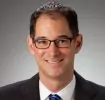On February 25, 2014, Chief U.S. District Judge Leonard Davis of the Eastern District of Texas unveiled an optional accelerated discovery schedule for cases involving claims of patent infringement. General Order 14-3 authorizes the use of a "Track B Initial Patent Case Management Order," which requires the early disclosure of license and settlement agreements for the asserted patents, summary sales information for the accused products, and a good faith damages calculation and estimate. This is in addition to the early disclosure of infringement and invalidity contentions already familiar to patent litigants in the Eastern District of Texas.
The parties may jointly elect the use of "Track B" in any patent case, and such an election must be made on or before the date of the last defendant's filing of an answer or motion to dismiss. However, the General Order provides that the Court may also enter a "Track B" schedule sua sponte.
Once elected, Track B requires the party alleging patent infringement to serve its infringement contentions and produce all licenses and settlement agreements for the asserted patents and any related patents within fourteen days. Thirty days later, the parties are required to make their initial disclosures under Fed. R. Civ. P. 26(a)(1), and all alleged infringers must produce summaries of United States sales and revenue data for the accused products, as well as any "reasonably similar products." Fourteen days after that, the patent holder must disclose an estimate of expected damages, including the methodology used to arrive at the estimate. According to the Order, the damages estimate is non-binding and "will not serve to limit the damages a party may recover." Another fourteen days later, the accused infringers must serve their invalidity contentions. The parties are then to provide notice to the Court within five days that the case is ready for a management conference.
In summary, parties electing (or being ordered to undertake) "Track B" should have full knowledge of the other side's preliminary contentions on liability and damages less than ninety days after an Answer or Rule 12(b) motion has been filed. According to a recent interview with Judge Davis, his hope in implementing Track B was that forcing the plaintiff to come forward with its damages case at the outset will lead to early resolution, especially in lower damages type cases. See http://ftijournal.com/article/inside-the-busiest-patent-court-in-america. It remains to be seen, however, whether parties will provide meaningful financial disclosures at such a preliminary stage so as to facilitate an early resolution of the case.
The content of this article is intended to provide a general guide to the subject matter. Specialist advice should be sought about your specific circumstances.


